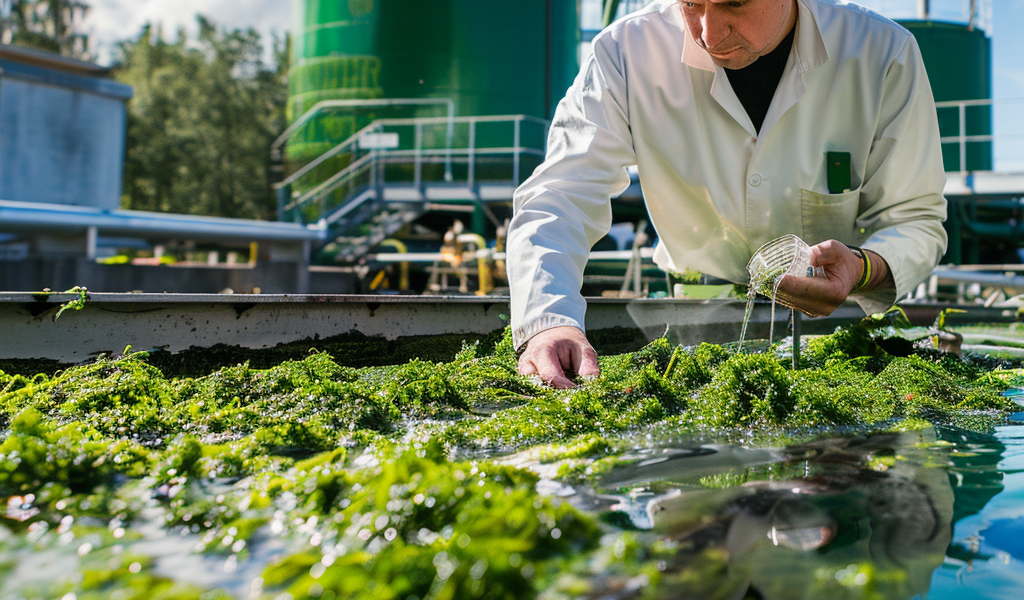Umeå University’s Waste2Plastic Project Secures SEK 15 Million for Biodegradable Plastics
The Umeå University’s Waste2Plastic project has secured a significant funding boost of SEK 15 million from the Swedish Energy Agency along with contributions from its industrial partners. This funding will be directed towards the innovative production of biodegradable plastics, specifically polyhydroxyalkanoates (PHA), derived from microalgae cultivated in wastewater.
Located at the Dåva waste treatment plant in Umeå, the project utilizes both greenhouse and outdoor settings to grow microalgae. These algae play a crucial role in converting carbon dioxide emissions from flue gases into biomass, which is then processed into biodegradable plastic products such as packaging and lamp components.
Christiane Funk, the project manager at the Department of Chemistry, expressed optimism about the initiative, stating, “We are on our way to a sustainable bioplastics industry.” This project is part of a broader movement towards creating environmentally friendly alternatives to conventional plastics, which have predominantly relied on fossil fuels.
Over the past five decades, global plastic production has skyrocketed from 1.5 million tonnes to an astonishing 395 million tonnes annually. Unfortunately, the majority of these fossil-based plastics end up in landfills, with only about 9% being recycled and 12% incinerated. The remaining 79% takes centuries to decompose, leading to environmental concerns.
Professor Christiane Funk highlights the potential of bio-based plastics, stating, “Bio-based plastics, generated from renewable resources, can play an important role in the circular economy to avoid the use of fossil fuels.” She emphasizes the need for new degradation methods and less toxic chemicals during manufacturing to enhance the sustainability of plastic production.
Despite the promise of biodegradable plastics, the bioplastics sector accounted for a mere 1% of the total plastic production globally in 2022. One of the main challenges hindering the commercial viability of these materials is their high production costs compared to traditional petrochemical-based plastics.
The Waste2Plastic initiative aims to address these challenges by utilizing local strains of Nordic microalgae, which not only reduces the carbon footprint but also minimizes fossil fuel consumption in bioplastic production. The collaboration with Vakin and Umeå Energi allows for the efficient growth of algae in industrial and municipal wastewater, where the microalgae perform photosynthesis and convert waste carbon dioxide into valuable biomass.
The algae cultivated in this project include species such as Coelastrum astroideum, which effectively produce carbohydrates under controlled conditions and synthetic wastewater environments. This cultivation process not only contributes to the production of biodegradable plastics but also actively removes pollutants from the wastewater, promoting a cleaner environment.
The Waste2Plastic project is a promising step towards creating a sustainable bioplastics industry that could significantly reduce reliance on fossil fuels and mitigate the environmental impact of plastic waste. With the support of the Swedish Energy Agency and local partners, the initiative is set to pave the way for innovative solutions in the realm of biodegradable materials.
As the world grapples with the growing plastic pollution crisis, projects like Waste2Plastic highlight the importance of investing in sustainable alternatives that can meet future plastic demands without compromising environmental integrity. The successful implementation of such initiatives could mark a pivotal shift in the plastic manufacturing landscape, steering it towards a more sustainable and eco-friendly future.





